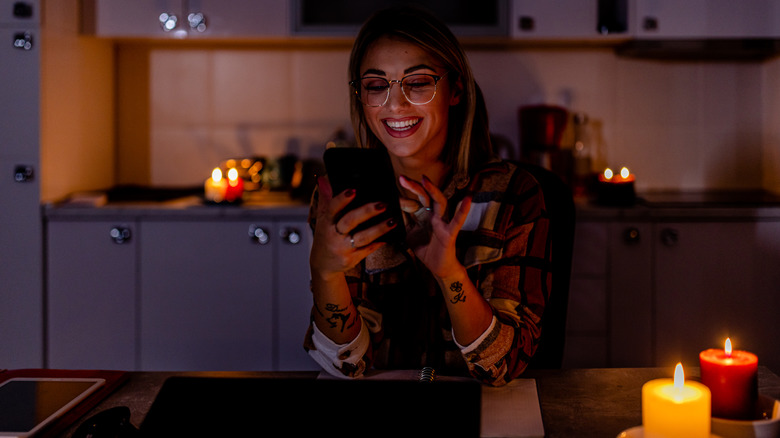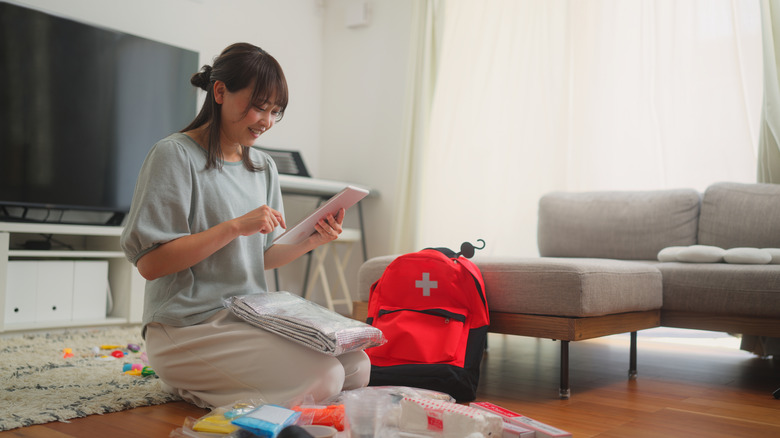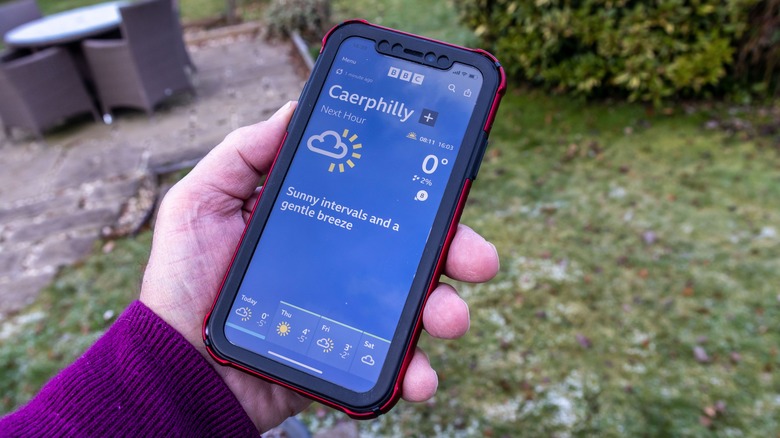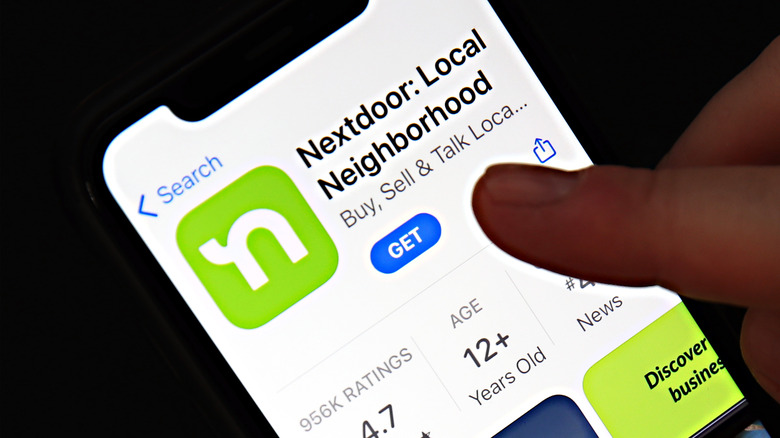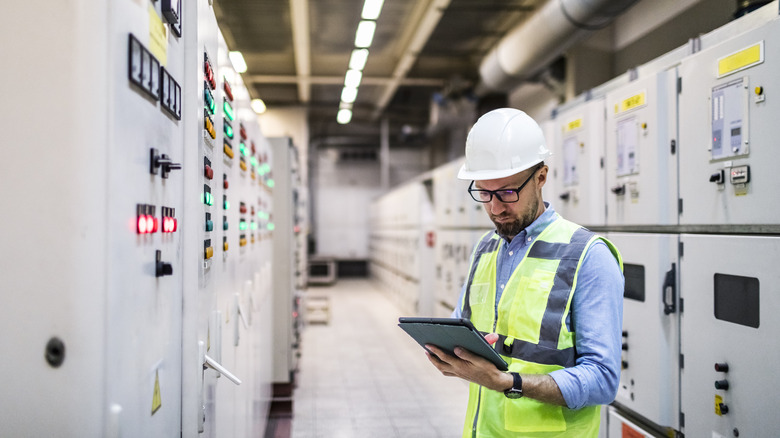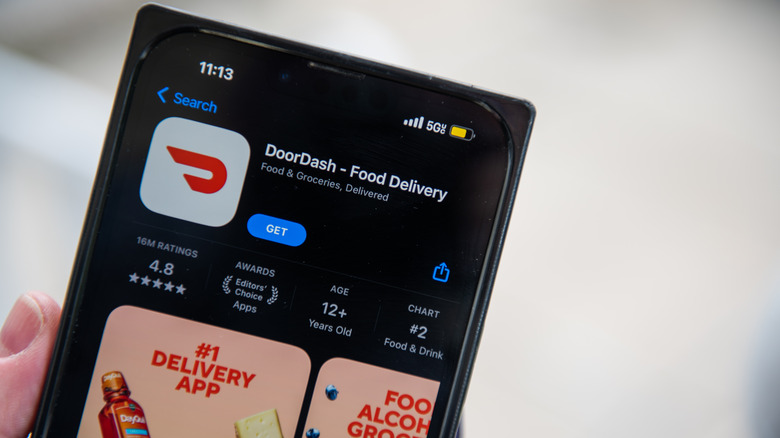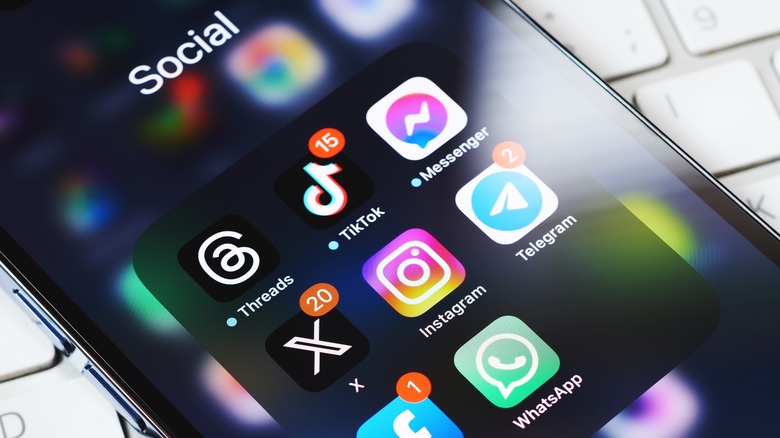6 Apps To Have Installed In Case Of A Power Outage
You're sitting at home, watching TV, or eating dinner when it happens. The first thing you notice is an eerie silence as the lights go out. All the usual humming of your home's electrical systems is gone. No more fans, appliances, or refrigerator noises in the background. It's a power outage, and you're left to realize how vulnerable you are in the absence of modern infrastructure. Hopefully, you keep your phone charged because your cell signal is now the only thing connecting you to the outside world.
In the event of a power outage, there are several smartphone apps that can help you navigate the situation. Before diving into them, it's worth mentioning that you should keep at least a phone-sized power bank that will charge your phone so you can call emergency services or use the apps on this list.
Your phone may be your only way to access vital information about the scale of the power outage, the estimated time until the power company fixes it, and whether there's a larger emergency causing the outage. Here are six apps that can help you when the power goes out.
First aid app
In the best-case scenario, blackouts are boring. You dig out some candles and flashlights, flip the breakers, and wait for updates from the power company. But if an emergency causes a power outage, you may find yourself in need of quick first aid information to help yourself or others who've been injured. Of course, you should always call emergency services if you or someone around you is in need of medical attention, but a first aid app can be a valuable stopgap while waiting for help to arrive. It may take a while for paramedics to show up if there's a widespread emergency event, so in the meantime, having an app that can walk you through basic lifesaving procedures such as controlling bleeding, burn treatment, or CPR could prove invaluable. Moreover, many first aid apps store information locally, which is useful even if your phone's internet connection is gone.
The First Aid app by the American Red Cross (iOS and Android) is a fantastic option for most people. It comes equipped with a first aid guide with step-by-step instructions for the most common medical emergencies, such as asthma attacks, allergic reactions, bleeding, and burns. It also includes a hospital locator, access to online first aid classes, and first aid certificate storage. Another solid option is First Aid Fast (iOS and Android), which has similar features, though its first aid guides are somewhat more comprehensive, making it a good option for anyone who already has a bit of first aid knowledge.
Weather app
Many power outages are caused by inclement weather, such as heat waves, thunderstorms, snowstorms, tropical storms, hurricanes, and other extreme events. If you're in the middle of a power outage, it's always a good idea to check the weather to determine whether it's safe to remain in your home and whether the issue is likely to be resolved in a timely manner. A good weather app can help you out here.
Your smartphone probably came pre-loaded with a weather app that will get the job done, but if you're looking for more granular and comprehensive information—which, during a power outage, you likely are—then you'll want something more feature-rich. The best weather apps on iPhone include WeatherBug, which comes equipped with radar and storm tracking, and AccuWeather if you're looking for an app that's more straightforward. The best weather apps on Android include Windy.com if you're looking for the most data possible, and WeatherBug is cross-platform, making it an excellent choice for Android, too.
Neighborhood apps
Apps such as Citizen (iOS and Android), Neighbors by Ring (iOS and Android), and Nextdoor (iOS and Android) are built to give you real-time emergency and crime alerts from people who live in your neighborhood. Those platforms will likely spring to life in the event of a widespread power outage, with those around you providing information about their experiences.
These social apps all have different features that could be useful during a power outage. For example, Neighbors gives users access to safety updates from local public agencies, which can be useful if there's a larger emergency causing the outage. Meanwhile, Citizen offers live 911 alerts and access to "safety agents," real people who can monitor your location and phone camera if you are personally in danger. Finally, Nextdoor has the best features for those who want to communicate with people nearby directly, offering group message boards and the ability to add your neighbors as contacts in the app.
Your power company's app
During a power outage, you'll want to keep a close eye on statements and updates from your power company, and the best place for that is probably the company's app. Since electricity in the United States is privatized, which company delivers power to your home will likely differ depending on where you live. Still, during an outage, most power companies release information about how widespread the outage is and when power is likely to be restored. You may also get access to interactive outage maps, alerts for updates on the situation, such as the progress of repair crews, and extra safety information (again, this all depends on your provider).
While they may provide information about the power outage you're experiencing that can't be gleaned elsewhere, power company apps, unfortunately, tend to be poorly coded, laggy, and frustrating to use. If you find that to be the case with your provider's app, consider visiting its website instead to see if the same information is available there.
Food and grocery delivery app
When the power goes out, you'll quickly notice which items you don't have that would help to deal with the situation. Shelf-stable food, flashlights, candles, first aid kits, and even water could be the difference between comfort and panic, and all of it can be yours if you keep a delivery app on your phone. Apps like Uber Eats (iOS and Android) or DoorDash (iOS and Android) deliver not only food from local restaurants but also groceries from your local supermarket and convenience stores. Other apps like Instacart (iOS and Android) will deliver groceries specifically, depending on where you live.
Of course, if you have a working car or decent public transit near your location, you'll probably still be able to go to the store yourself during a power outage. Still, there may be edge cases in which you can't or in which you need to stay home—whether to work on restoring power yourself or wait for the power company to send technicians. In those situations, the convenience of being able to have supplies and food delivered to your home can be invaluable.
Social media
When the power goes out, your first thought might not be to check social media, but it should be. Apps like Facebook (Android and iOS) and X (formerly Twitter) (Android and iOS) can be valuable sources of real-time information in an emergency, especially if you live in a heavily populated area where more people are likely to post updates. On Facebook, you can find groups of people who live in your area and may share updates on their experiences during the outage. Also, searching for your neighborhood on X can surface posts from people nearby. Using these apps can be a good way to understand how widespread the power outage is and whether an emergency is causing it.
You may also want to look for your neighborhood's Reddit (Android and iOS) community, if one exists, where yet more people may be gathering to discuss the situation. Even Snapchat's (Android and iOS) Snap Map can help since you'll see live story posts from people in your specific area.
Finally, you may want to consider setting up a neighborhood WhatsApp (iOS and Android) group to establish a dedicated place for people to help each other out in the event of an outage. Not only will a dedicated chat group help during a power failure, but it can also be valuable during other emergency situations. Even when things are going fine, it's a great place to get to know people who live near you, set up community events, and more, creating a group cohesion that will make people more likely to help each other when an emergency begins.
